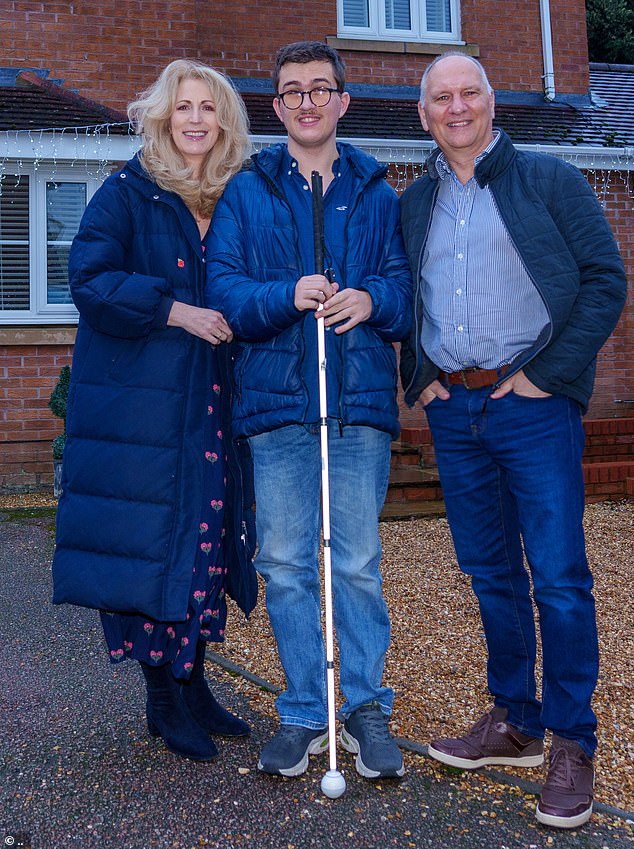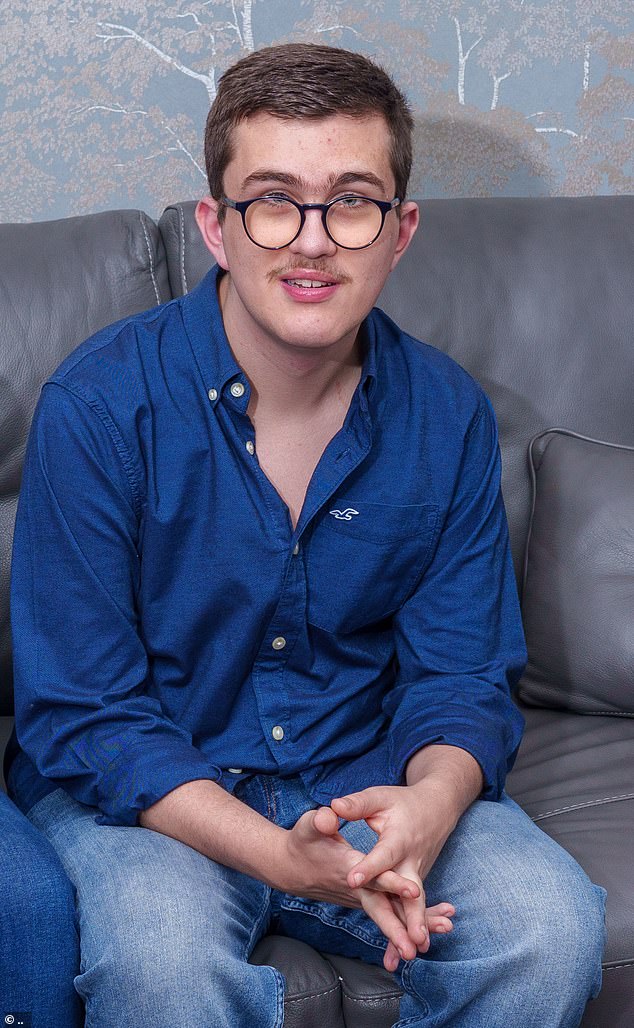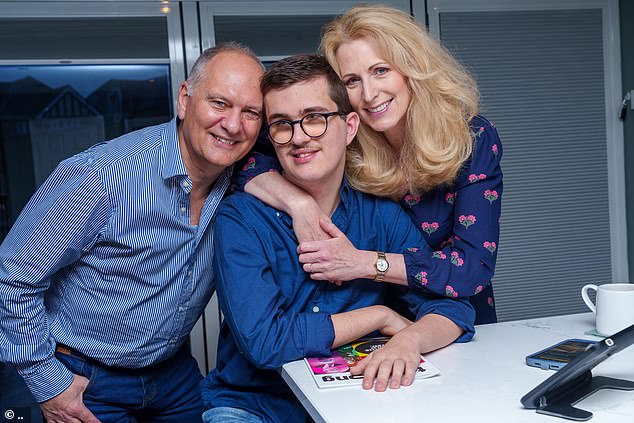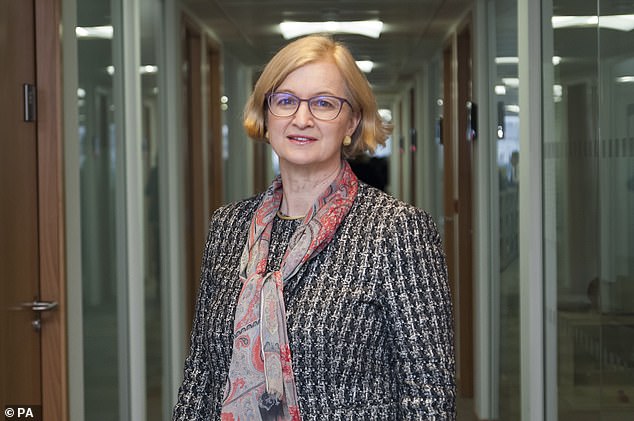Eight-year-old Bryn was a disruptive pupil. He roamed the classroom as if he owned it, asked silly questions and, given the chance, was prone to demolishing things.
When his case came to the desk of child psychiatrist Dr Mike Shooter, he faced intense pressure from Bryn’s middle-class, professional parents to produce a diagnosis of ADHD (attention-deficit hyperactivity disorder).
‘It would have been easy to give way to the parents’ perception,’ he recalls in his book, Growing Pains: Making Sense Of Childhood. ‘But I was determined, instead, to explain to them why he did not have ADHD.’
But not all misbehaving kids are deserving of a diagnosis that will award them extra time in exams or one-to-one tuition, as we will see. And not all doctors are as prepared to challenge parents as Dr Shooter, a distinguished former president of the Royal College of Psychiatrists.
Indeed, many inside the NHS and Government believe it is pushy families demanding diagnoses for such conditions who are at least partly behind an explosion in the number of children being recorded as having special needs.
While the number of pupils with physical disabilities has remained stable, the incidence of neurodiverse conditions such as ADHD and ASD (autism spectrum disorder) has rocketed. ‘The definition of special needs has widened beyond very profound disability,’ one former civil servant says. ‘It seems sharp-elbowed middle-class parents especially know how to get a diagnosis.’
The problem has become so severe that many councils are at risk of bankruptcy owing to the ballooning costs of providing specialised care plans for these children.
Last month, the public accounts committee (PAC) warned that by the end of 2027-28, councils’ overspending on special needs could be between £2.9 billion and £3.9 billion per year.

Zac Hollinshead, 16, who is visually impaired, with his parents Suzanne and Ian. They had to remortgage their home to fight the local council, who turned down their EHCP application. They spent £70,000 fighting his case so that he could attend a specialist school for the blind
But when Education Secretary Bridget Phillipson last week refused to guarantee that the current level of funding would continue, it provoked a civil war in Labour, with restive backbenchers – still giddy with power from their success in forcing a U-turn on cuts to the welfare budget – poised to rebel over any proposals to prune another branch of social care.
They believe officials could be planning to scale back the use of education, health and care plans (EHCPs), which legally oblige councils to fund support for pupils with special needs. Instead, the Government may in future expect schools to provide such services for a larger proportion of these pupils.
EHCPs, introduced in 2014, were aimed at providing care for children with ‘high’ needs, such as those with Down’s syndrome, blindness and severe autism. Anyone with a milder diagnosis would get special educational needs (SEN) support provided by their school.
However, since 2018-19, the total number of EHCPs has risen from 353,995 to a record 638,745. The Institute for Fiscal Studies says the rise has been driven by ASD, ADHD and other non-physical conditions. This year, 32 per cent of them are held by pupils with ASD, while 21 per cent are held by children with social, emotional and mental health issues – including ADHD.
This boom coincided with an increase in media coverage of conditions in these two categories and a widening of the definition of ASD.
The latter used to refer to profoundly disabled children, many of whom were non-verbal, but, in 2013, the definition was broadened to encompass a ‘spectrum’, including pupils with social issues or obsessive tendencies.
This occurred against a background of an upwards trend in diagnoses across the general population, with the latest relevant study showing that, between 1998 and 2018, there was an eight-fold rise in diagnoses of ASD. Over a similar time period, there was a 20-fold increase in diagnoses of ADHD, which is characterised by impulsiveness and an inability to concentrate.
Campaigners have praised the rise as evidence of ‘better diagnosis’, but Dr Max Pemberton, an NHS psychiatrist and Daily Mail columnist, says: ‘Until just a few years ago, I could count on one hand the number of patients I had seen in general mental health outpatient clinics with autism.
‘Now I see at least one a week. Yet, having worked in learning disability services with people with profound autism, what these patients complain of – vague feelings of not fitting in, not making eye contact, social awkwardness, perfectionism and obsessive traits and so on – is nothing near true autism, at least how it used to be termed.’
Amanda Spielman, a former head of Ofsted, is also concerned. ‘There’s incredible pressure in the system, because a model that was designed for children with the most severe physical and mental health needs is now extending to a very wide range of children,’ she says.
Some EHCPs border on the farcical, specifying schools provide fidget spinners (gadgets marketed as an aid to concentration), wobble cushions (inflatable cushions that force the user to engage their core muscles to maintain balance and posture) and sensory tents (portable, enclosed spaces designed to reduce sensory input and provide a calming environment).
Among the more expensive interventions mandated by EHCPs for ADHD is one-to-one support from a £20,000-a-year teaching assistant.
One of the downsides to all this is that it has become increasingly difficult for parents of children with severe needs to obtain the appropriate level of care. The system is so overwhelmed by applications for EHCPs that it can take years to get an application approved.

Education Secretary Bridget Phillipson last week refused to guarantee that the current level of funding for special needs education would continue. Backbenchers are poised to revolt

While at a mainstream school, Zac Hollinshead ‘became withdrawn and agitated, and he wasn’t sleeping. He couldn’t couldn’t do the work’, according to his mother Suzanne, 53
Suzanne Hollinshead’s son Zac is registered blind – an obvious high-needs case requiring extensive support. His rare genetic condition means he cannot see in 3D, make out facial expressions or walk unguided. He also has cognitive issues, which make it hard for his brain to process what little his eyes can pick up. Despite this obvious physical disability, he was placed in a mainstream school aged four and told to sit in an everyday classroom.
‘He became withdrawn and agitated, and he wasn’t sleeping,’ says Suzanne, 53, a mum-of-three from Flitwick, Bedfordshire. ‘He couldn’t connect with other kids at school, and he couldn’t do the work.
‘Once he was told off for not being able to draw an aerial view of something. He came home so upset, because with his disability, of course he has no concept of what an aerial view is. He was trying to exist in a classroom with overwhelming noise, unable to see and often unable to understand. He started to say, ‘What is the point of me?’ He felt he had no worth in his life.’
When he turned 11, his parents decided he would benefit from attending a specialist school for the blind but, as they could never have afforded the fees, estimated to exceed £80,000 a year, they applied to the local authority for an EHCP.
When this was turned down, Suzanne and her bank worker husband Ian, 58, remortgaged their house and, over the ensuing two years, spent £70,000 fighting his case all the way to a tribunal.
‘The tribunal process was stressful and intimidating,’ she says. ‘I was actually physically sick on the day of it. I wouldn’t wish it on my worst enemy. We will never recover from it.’
But she did win her case and Zac, now 16, is thriving at New College Worcester, a specialist residential school for the blind. With the help of specially trained invigilators, scribes and technology designed for the blind, he has just sat nine GCSEs and hopes to study politics and business A-levels. ‘It has been such a turnaround,’ says Suzanne, who also has two daughters – Zac’s twin Isla and Annie, 22. ‘He is lively, funny and a delight to parent. He has gone from a boy without hope to someone who has lots of friends, a brilliant sense of humour and aspirations for the future.’
Suzanne believes part of the reason the council took so long to help her is the volume of other cases that are not as pressing as hers.
‘Zac has a high-impact disability,’ she says. ‘But the local authorities aren’t separating high-impact cases from the rest.
‘Our case was mixed in with this much bigger issue of neurodiversity in mainstream schools.
‘We were all in the same pot and our case didn’t stand out from the crowd. We were lost in a system that is so oversubscribed, and that’s why the process took so long. And the local authority had to treat our case in the same way as everybody else’s.’
While around a third of all cases that go to tribunals, whether deserving or not, are settled outside court, a startling 99 per cent of those that are heard are successful. Once a tribunal judge has specified what support a pupil needs via an EHCP, the local authority is then legally obliged to pay for it, however high the cost.

Ian and Suzanne Hollinshead with their son Zac, who is now thriving at New College Worcester. With the help of specially trained invigilators, scribes and technology designed for the blind, he has just sat nine GCSEs and hopes to study politics and business A-levels

Amanda Spielman, a former head of Ofsted, says ‘a model designed for children with the most severe physical and mental health needs is now extending to a very wide range of children’
Zachary Marsh, research fellow at the Policy Exchange think-tank and a former teacher, says: ‘In this system it is those who shout loudest – and not those with the most severe needs – who are best placed to access support.’
Numerous reports have sounded the alarm about a system at the brink of collapse. Last year, the National Audit Office said the SEN system is ‘not delivering better outcomes’ for pupils and the costs are ‘unsustainable’.
Elliot Keck, of the TaxPayers’ Alliance, says the system is ‘currently set up to effectively bankrupt local government’. ‘While campaigners will point to better diagnosis as one of the driving causes behind increases in claims, this will be a pyrrhic victory if the result is that town halls across the country end up bankrupt,’ he adds.
As well as pushy parents, the finger has been pointed at private schools themselves for facilitating and even encouraging SEND applications for their pupils.
Figures published by Ofqual, the exam regulator for England, last November showed that 42 per cent of students at independent schools received extra time in exams owing due to special needs, compared to just 26 per cent in non-selective state schools.
Critics of the system might say what it needs is more discerning assessors of the sort exemplified by Dr Mike Shooter, whose treatment of his patient Bryn is an object lesson in how the job could be done.
After dedicated observation, he came to realise that Bryn’s behaviour was simply the result of being brought up by parents who had high-pressure work lives and were often tired and irritable.
‘Here was a lad whose identity had been submerged by the parents’ need for a diversion from their own problems,’ he observes.
However, he was saved from having to deliver this rather uncomfortable verdict when the family came to him weeks later to say they now believed milk intolerance had been the cause of Bryn’s behaviour all along!
In the coming weeks, we will see if Prime Minister Sir Keir Starmer has the political will to push through reform of a system whose costs have spiralled out of control, or whether it will meet the same fate as his welfare Bill.
Baroness Spielman is one who believes it is vital that ministers hold their course.
‘It is a political hot potato,’ she says. ‘It will be very easy to present any change as a negative for children, but if people just dig their heels in to defend the status quo, things are going to get worse not better.’












